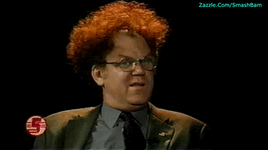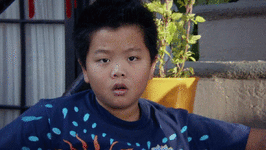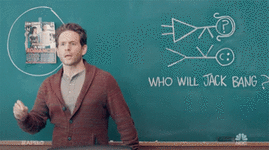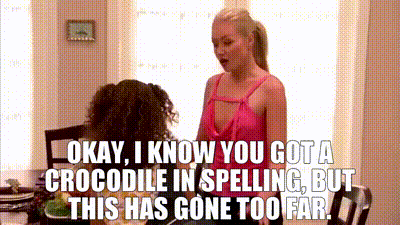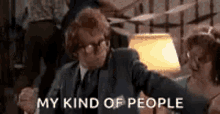Hemotep
Well-Known Member
Intertextuality is the implicit or explicit, whether understood by all or argued by some, presence of one text within another text. Think, for instance, of what Karl Mannheim wrote: “Strictly speaking it is incorrect to say that the single individual thinks. Rather it is more correct to say that [they] participate in thinking further what others have thought before [them].” The short story writer Tobias Wolff compared this to a chain, in his short story of that name, in which we only receive one link in the story but we know that there are links that go beyond the text, forward and backward in our thoughts, and in that way the story keeps being told in our minds even when it is no longer on the page. Every piece of culture that is produced is influenced by the chain of history. The chain may rest heavily on the link that precedes or follows it or it may not touch those links at all; regardless they remain linked. The albums we listen to are also texts that are bound by this process of social thought.
The sociologist Max Weber developed a sociological practice based on what he called, in the German, Verstehen. This practice involves the attempt to understand, interpret, and make meaning out of our world and those people and things with whom we share it. This month’s challenge has a variety of themes, but all will rely on your discernment—the understanding and meaning you make out of the prompts—with the goal of putting the album you select into conversation with the prompt. Does the prompt speak to the album, or does the album speak to the prompt? The directionality is up to you. Although it is not required, I most enjoy reading why you selected the albums to play that you did.
TL;DR: Read the quote from the short story (the whole story is linked). What does it mean to you? How do you understand it removed from context? Does it remind you of any songs/albums/bands? If you were to imagine what comes before and after the quote and an album were part of it, what album would it be? Or is there a word, a phrase, an image in the quote that makes you think of an album? Play that
April 1 – Samuel R. Delany, Aye, and Gomorrah…
The sociologist Max Weber developed a sociological practice based on what he called, in the German, Verstehen. This practice involves the attempt to understand, interpret, and make meaning out of our world and those people and things with whom we share it. This month’s challenge has a variety of themes, but all will rely on your discernment—the understanding and meaning you make out of the prompts—with the goal of putting the album you select into conversation with the prompt. Does the prompt speak to the album, or does the album speak to the prompt? The directionality is up to you. Although it is not required, I most enjoy reading why you selected the albums to play that you did.
TL;DR: Read the quote from the short story (the whole story is linked). What does it mean to you? How do you understand it removed from context? Does it remind you of any songs/albums/bands? If you were to imagine what comes before and after the quote and an album were part of it, what album would it be? Or is there a word, a phrase, an image in the quote that makes you think of an album? Play that
April 1 – Samuel R. Delany, Aye, and Gomorrah…
- “"Yes." She looked down. I glanced to see the expression she was hiding. It was a smile. "You have your glorious, soaring life—and you have us." Her face came up. She glowed. "You spin in the sky, the world spins under you, and you step from land to land, while we . . ." She turned her head right, left, and her black hair curled and uncurled on the shoulder of her coat. "We have our dull, circled lives, bound in gravity, worshiping you!" She looked back at me. "Perverted, yes? In love with a bunch of corpses in free fall!" Suddenly she hunched her shoulders. "I don't like having a free-fall-sexual-displacement complex."”
- “It is not too early in the war to discern nostalgic references to earlier wars. All wars refer back. Ships, planes, entire operations are named after ancient battles, simpler weapons, what we perceive as conflicts of nobler intent. This recon-interceptor is called Tomahawk II. When I sit at the firing panel I look at a photograph of Vollmer’s granddad when he was a young man in sagging khakis and a shallow helmet, standing in a bare field, a rifle strapped to his shoulder. This is a human moment, and it reminds me that war, among other things, is a form of longing.”
- “Maxa’s vanity was cluttered with what she needed and more: bulbed bottles of scent with sleek lines, a small pair of scissors, mascaras and powders the color of chalk, lipstick and a metal tracer, kohl for her eyes, a hot curler, rouge, a fat brush tipped in pink dust, pencils, old scripts, a pair of bone-colored dice. It seemed like a place where spells were cast; that by scooping up a resident mouse and opening its throat into her wine glass, Maxa might be able to curse whomever she pleased. But there was no need for animal blood; powdered carmine arrived in small sacks – which Sabine told me was created by boiling insects – and I spent my waking hours mixing and reheating the concoction like a vampiress.”
- "Transition to idiot-savant mode is always less abrupt than I expect it to be. The pirate broadcaster's front was a failing travel agency in a pastel cube that boasted a desk, three chairs, and a faded poster of a Swiss orbital spa. A pair of toy birds with blown-glass bodies and tin legs were sipping monotonously from a Styrofoarm cup of water on the ledge beside Molly's shoulder. As I phased into mode, they accelerated gradually until their DayGlo-feathered crowns became solid arcs of color. The LEDs that told seconds on the plastic wall clock had become meaningless pulsing grids, and Molly and the Mao-faced boy grew hazy, their arms blurring occasionally in insect-quick ghosts of gesture. And then it all faded to cool gray static and an endless tone poem in the artificial language."
- “On the morning she was moved to the cemetery, the one where Al Jolson is buried, I enrolled in a "Fear of Flying" class. "What is your worst fear?" the instructor asked, and I answered, "That I will finish this course and still be afraid."”
- “She stepped away from God, and already God seemed to be fading, becoming translucent, transparent, gone.
- “I want to forget,” Martha said, and she stood alone in her living room, looking blankly past the open drapes of her front window at the surface of Lake Washington and the mist that hung above it. She wondered at the words she had just spoken, wondered what it was she wanted so badly to forget.”
- “One holds the knife as one holds the bow of a cello or a tulip--by the stem. Not palmed nor gripped nor grasped, but lightly, with the tips of the fingers. The knife is not for pressing. It is for drawing across the field of skin. Like a slender fish, it waits, at the ready, then, go! It darts, followed by a fine wake of red. The flesh parts, falling away to yellow globules of fat. Even now, after so many times, I still marvel at its power--cold, gleaming, silent. More, I am still struck with a kind of dread that it is I in whose hand the blade travels, that my hand is its vehicle, that yet again this terrible steel-bellied thing and I have conspired for a most unnatural purpose, the laying open of the body of a human being.”
- “Every day since then I am haunted by the ghosts of the dead rabbits and have behaved like a large, one-eyed rabbit. In short, I have clearly confirmed that I can never again return to the world of human beings. Looking back on it, I see that I had lived like a normal human being until the fourteenth of that month several years back. Up to that time, I had been like any normal schoolgirl and had kept hidden from my classmates everything about my father’s strange tastes—that he killed rabbits and cooked them. And I cannot say that I did not feel somewhat guilty about eating the cooked rabbits. If they had known that I had calmly eaten the rabbits I myself raised, my classmates would have surely nicknamed me Tiger Lily.”
- “On the horizon I could see the highway disappearing into the hills. Night was beginning to approach from the east. Days before, at the motel, I had asked myself, What color is the desert at night? A stupid question, yet somehow I felt it held the key to my future, or perhaps not so much my future as my capacity for suffering.”
- “He left soon after dinner, but not to go home. He was curious to see Paris by night with clearer and more judicious eyes than those of other days. He bought a strapontin for the Casino and watched Josephine Baker go through her chocolate arabesques.”
Last edited:



